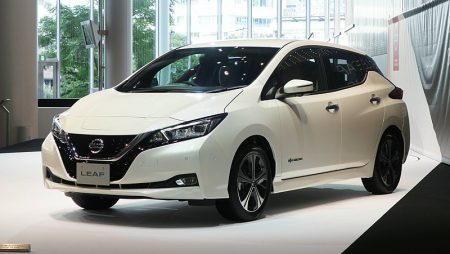Firms like Nissan, Renault and BMW have plugged serious money into electrification but a coherent vision is key
It’s hard to look ahead when you are fighting fires, but for years now, across the automotive industry, yesterday’s crisis has been merging into tomorrow’s crisis, every perfect storm somehow becoming yet more perfect. The pattern is set to continue.
Take a step back and it’s interesting to note which manufacturers have had the foresight, resources and brain capacity to invest in communicating their strategy out to the theoretical furthest point, whatever it may be: electrification, certainly; autonomy and connectivity, too; but also as far out as modelling worlds in which we don’t own cars but hire them, or potentially don’t even allow cars into city centres – or anywhere at all.

You might argue that all this change is unimportant until it becomes a money-making reality. A live case study to ponder is whether Nissan, Renault or BMW will enjoy any long-term benefit from moving early on electrification. The investment in the Leaf, Zoe and i3 – plus spin-off vehicles – runs to billions, but it’s hard to pinpoint any advantages, either in brand perception or profits. Maybe in time.
Perhaps the key to success here is offering a singularly distilled vision. In some cases, that’s simple: Tesla is the world’s most desired electric car brand because all it does is make desirable electric vehicles. Most rivals are beholden to profits from ‘legacy’ combustion-engined cars, their heritage suddenly a millstone. Mixed messages abound.
But even then, a coherent vision can reap dividends, and Volvo is the most prominent example of the quantum leap that can be made with such forward thinking. Back in 2014, when the XC90, the first of its new-generation cars, was launched, Volvo was marooned somewhere between premium and mainstream brands, a fringe player with a set of unfocused objectives selling around 400,000 cars a year.
A succession of new, quality cars has been central to its renaissance but so, too, has its ability to colour in its own road map. Its claims in 2017 to make its entire range electrified by 2020 – neatly overlooking that this included mild-hybrid systems – landed it perception-shifting headlines. Likewise, its oft-stated vision to ensure that nobody is killed in or by one of its cars. Today, it is selling around 800,000 cars a year.
People don’t just buy cars for what they can do for them today, but rather what they will say about them into the future. It’s remarkable how few car makers are willing to tell that story – but just as clear that the smartest car makers are doing just that.
Read more: AUTOCAR
It’s Time to Go Green!
If you would like to know more about Solar Panels and the PowerBanx range of home battery systems, and get a free instant quote, please complete our online form:

